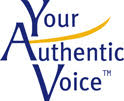“I cannot believe Jerry said that to me. He chastised me because I didn’t get the budget numbers right! I mean, really, who does he think he is?! I’m not perfect. Things happen! It’s not like I don’t cut him some slack when he screws up. Guess I’m just going to have to bail him out again. Geez. Just wait until he needs me . . .”
 Does this sound familiar? Or some take on this? Who among us hasn’t felt misunderstood, betrayed or just generally wronged in a work situation before, regardless of the details? Who hasn’t been mistakenly blamed for something? Who hasn’t reacted with anger or tears out of sheer frustration and regretted it?
Does this sound familiar? Or some take on this? Who among us hasn’t felt misunderstood, betrayed or just generally wronged in a work situation before, regardless of the details? Who hasn’t been mistakenly blamed for something? Who hasn’t reacted with anger or tears out of sheer frustration and regretted it?
I know I have. It’s a pretty good guess that if you’re breathing, you have, too. Here’s the thing — most of us have learned how to take things personally in certain situations. It’s all about us . . . even when it isn’t! If taking something personally feels good, we probably respond pretty positively. If it doesn’t, that’s when the drama triangle comes into play. That’s when we fall into the trap.
What is the drama triangle? (Karpman Drama Triangle)
The drama triangle is a way of perceiving and responding based on manipulation, dishonesty and blame. It causes pain, loss of love and respect, and loss of personal power. Drama triangles are mired in power struggles. And, unfortunately, most of us have learned how to communicate from the drama triangle because that’s what we saw modeled. The good news is, we we can learn another way.
The drama triangle supports three primarily roles:
Victim — key role
- Takes no responsibility
- Blames
- Feels disempowered
Persecutor
- Uses Intimidation
- Wants one’s own way
- Held responsible for hurting others
Rescuer
- Rescues to provide relief
- Needs to feel needed
- Does more than fair share, gives more than he or she gets
Recognize these? Although everyone has a favorite starting position, we can play all positions, and we don’t even need anyone else to play! Using my opening sentence, here are the roles:
“I cannot believe Jerry said that to me. He chastised me because I didn’t get the budget numbers right! I mean, really, who does he think he is?! (persecutor) I’m not perfect. Things happen! (victim) It’s not like I don’t cut him some slack when he screws up. (victim) Guess I’m just going to have to bail him out again. (rescuer) Geez. Just wait until he needs me . . .” (persecutor)
The drama triangle in all its glory. When two people are involved in this kind of conversation, no one gets out unscathed. What can we do instead?
Become a trustworthy communicator!
Each role has an antidote. When you recognize what’s happening, or you’ve fallen into the trap, choose the antidote and stop the madness!
- Instead of being a victim, become a problem solver. Take responsibility, look for your part in the situation, and search for potential solutions.
- Instead of being a persecutor, create structure. Look at what can be created to make things flow more smoothly.
- Consider the needs and desires of all involved and work toward a win-win agreement.
- Instead of being a rescuer, become a nurturer. Don’t try to “fix.” Empathize. Seek to understand.
Here’s how that might sound:
“Jerry told me the budget numbers are incorrect. I’m surprised. I wonder if I used some inaccurate data? I’ll have to check that out. (problem solver) He seemed upset, which I can certainly understand. I know it’s important. (nurturer) I’m going to talk with him about how we can work out a solution so it doesn’t happen again. I certainly want him to be able to trust the information I give him.” (create structure)
Even if Jerry was upset when he delivered the information, we’re not falling into the trap of taking it personally. This isn’t necessarily easy, which is why timing is everything. If you feel attacked, it’s human to get defensive. So, count to 10. Better yet, take as long as you need before you respond, and practice trustworthy communication.
I’ll be sharing more about how to communicate with respect, clarity and skill in my upcoming live group coaching program, The Stage Is Yours! For more details, go to https://www.andreabeaulieu.com/coaching/thestageisyours/ and then email me if you’re interested at Andrea@AndreaBeaulieu.com and let’s talk!

Leave A Comment